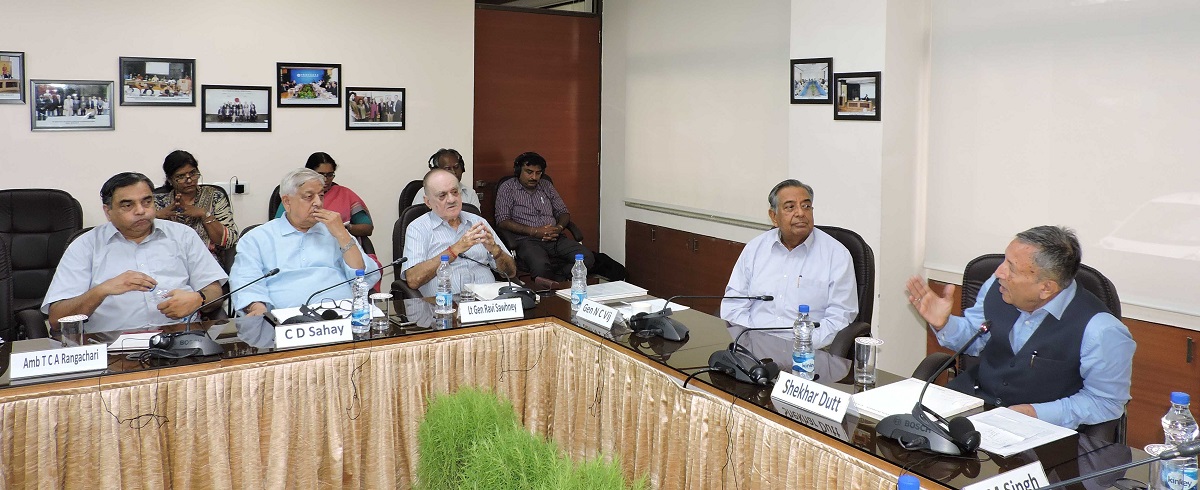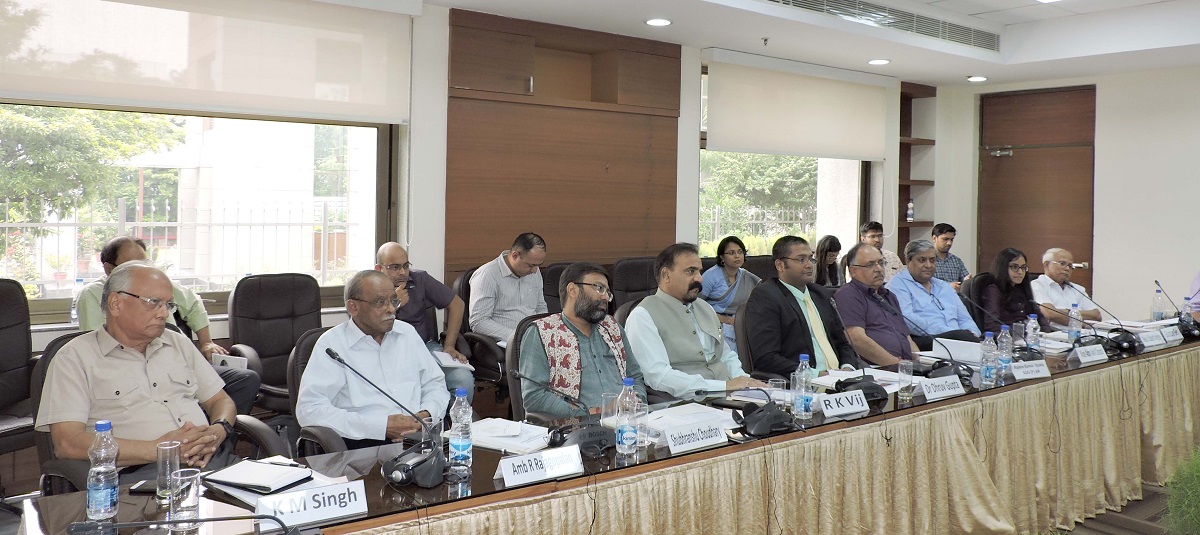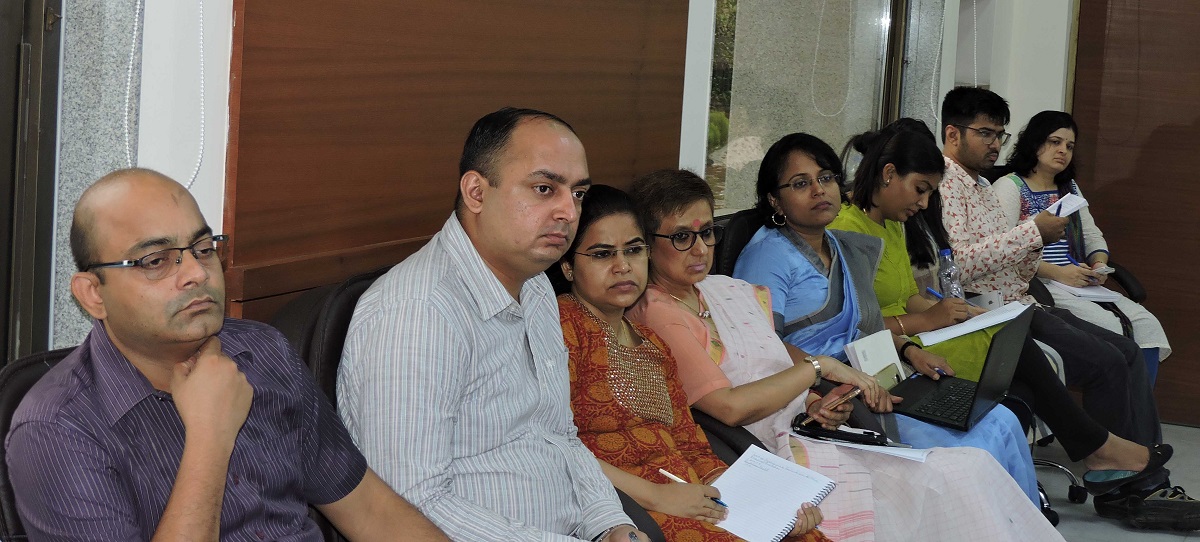On 31 July 2017, the Vivekananda International Foundation (VIF) organised a round table discussion on the Maoist Problem in India, focusing especially on its socio-economic dynamics. The panel assembled for the deliberations included policy experts, security practitioners – former and present, and members of the civil society, NGOs and academia. The discussion was broadly centered on Chhattisgarh, a state located in the centre-east of India which has remained the nerve centre of the Maoist activities despite gradual weakening of its activities in other states.

Mr. Sekhar Dutt, former Governor of Chhattisgarh, Mr. R. K. Vij, ADGP Chhattisgarh, Mr. Subhranshu Choudhary, a reputed journalist, Mr. Rajeev Kumar Shukla, ADG (P) All India Radio, Mr. Dhruv Gupta, IPS, Mr. Paul Alex Menon, and Lt Gen Gautam Banerjee (Retd), Member of the Executive Council and Distinguished Fellow, VIF, among others, participated in delving into the problems in tribal hinterlands. Accordingly, while taking view of the prevailing security environment in the worst Naxal-affected districts, in their presentations the panelists focused on a wide range of developmental issues. The discussion also focused on evolving better communication to improve the adivasis’ (scheduled tribes’) perception of the government.
In his opening remarks, General NC Vij, Director, VIF, pointed out that a part of the reason why Naxalism continues to bleed India has been the successive governments’ sense of apathy towards legitimate demands of the adivasis. That apathy resulted in persistent lag in the developmental activities in areas inhabited by the adivasis. He further asserted that long-term anti-Maoist strategy lies in development-centric approach, with successful security operations against the insurgents creating a necessary enabling environment for it. A former Chief of the Indian Army, General Vij, however, underlined the Army’s aversion to fighting a local insurgency in the country’s hinterland.

Mr. Shekhar Dutt recounted his first-hand experiences of dealing with both Maoists as well the developmental challenges in Naxal-infested districts of Chattisgarh. Underlining the paradox of poverty amidst plenty, the former Governor of Chattisgarh asserted that forests in the tribal hinterland are the treasure trove of natural resources, yet the original inhabitants of the forest remain an exploited lot, their rights limited to using only limited forest produces. He stressed on creating special economic zones for the adivasis and suggested a slew of welfare and developmental measures for them – creating employment opportunities, giving their products access to urban markets and exploring options for export, encouraging big corporates to set up forest-based industries like food processing, offering tax incentives and various other attractions.
Presentations made by other experts and discussions which followed the presentations zeroed in on isolating the critical mass i.e. ninety nine percent of the Maoist support base comprising of active cadres, supporters and sympathisers, and winning them over with developmental programmes and effective perception management, while dealing with the rest one percent, i.e. the hard core leaders through a different strategy. In their presentations the panelists came up with many suggestions and policy recommendations. A few of prominent recommendations as suggested by participating delegates include, promotion of social inclusiveness, scientific and behavioral education, equitable distribution of resources, setting up autonomous grievance redressal council, organic certification of local farm produce and opening of organic export market, encouraging skill learning and entrepreneurship, and learning of local languages for better communication.






